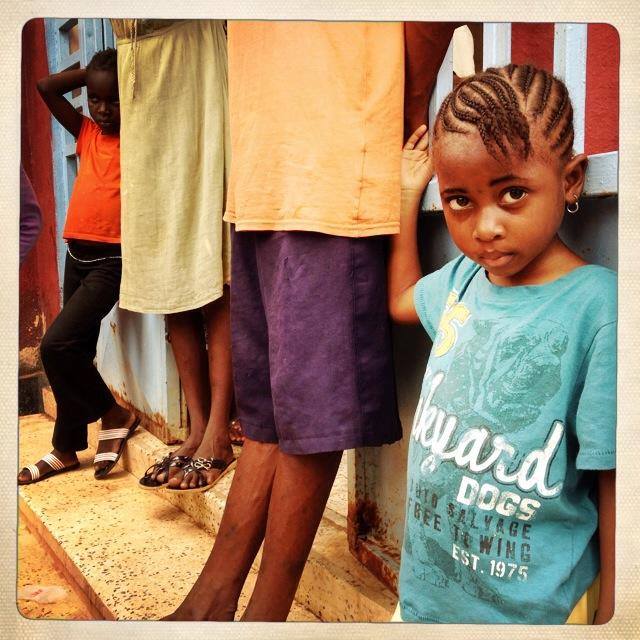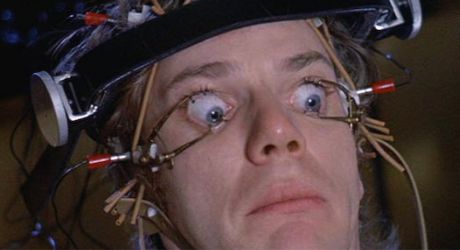
Let’s Care for Ebola Orphans As Much As Bentley, the Ebola Dog
Remember Bentley, the Ebola-exposed dog adopted by a Dallas nurse who became infected with the disease?
The dog had to be isolated to ensure he was not carrying the highly contagious disease, and the city of Dallas spent $27,000 on facilities and personnel during his 21-day quarantine period.
These days Bentley enjoys a celebrity status, making the rounds at veterinary conferences, most recently in sunny Orlando. President Barack Obama took time to check on the 2-year-old Cavalier King Charles spaniel. Bentley’s mug even appears on a T-shirt, part of a fundraising effort for the city-run Dallas animal shelter that oversaw the canine’s quarantine.
Texas became intimately tied to the epidemic that broke out in West Africa last year when Thomas Eric Duncan fell ill in Dallas in September after a visit to his native Liberia—the only Ebola patient to be diagnosed and die in the U.S. By November, health officials had cleared the 177 people exposed to Ebola in Dallas and declared the city “Ebola-free.” In March, Bentley’s owner, Nina Pham, sued the parent company of the Dallas hospital where she worked claiming negligence was to blame for her exposure to the deadly pathogen.
The legacy of Ebola in Texas pales to its enduring effects in Africa. Even as experts predict the epidemic could be gone by the summer, and the crisis fades from the headline, international aid groups are struggling to meet their needs with limited resources. The legacy of Ebola won’t simply disappear for the children left orphaned by the disease. The Texans who donated to the Bentley cause and supported Dallas through its scare, should consider extending some support to the thousands of Ebola survivors most in need of help: the children.
UNICEF estimates that 16,000 children in West Africa have lost one or both parents to the disease. In the last year, Ebola has infected about 25,000 people, including adults across Liberia, Guinea and Sierra Leone. Approximately 40 percent later died.
I worked in public health in Africa on HIV/AIDS pediatric issues and international adoption. Caring for one child orphaned by AIDS costs roughly $700 to $2,000 per year, including primary school, preventive medicine and everything else that goes into keeping a child healthy and alive. The costs for treating Ebola are comparable, and that’s $25,000 less than Bentley’s stay in quarantine.
But there are some key differences. It can take years for a person to succumb to AIDS. Some Ebola patients often die within a week or two. In short, there’s less time to do any planning for who might take care of surviving children, whether they are infected or not.
Imagine your child is the one in an Ebola treatment ward. He or she screams, cries, begs to be picked up and held. Any Ebola patient, child or not, is likely to have vomiting and diarrhea. Nobody gets much hugging because no-touch is the rule.
Three weeks later, the child has been tested to make sure he or she is no longer infectious, leaves the Ebola ward and emerges into a world of stigma. His or her parents may be dead or perhaps just can’t be located. Relatives often don’t want to touch or take in the surviving child.
In Texas, we saw a similar reaction. Months after the Dallas cases were cleared, doctors and nurses who work at the hospital reported that even pizza places won’t deliver to them. Pham’s attorney has said that she’s been stigmatized and that some people are apprehensive about being near her.
Imagine the stigma in West Africa. Shunned by their community and family or orphaned, the children emerge from illness alone and with nothing. UNICEF and other charities have teams working to place the orphans with extended family members or in special children centers.
It’s important to support the people who care, feed and give these Ebola orphans some of the affection heaped on Bentley.
UNICEF guidelines define a child’s basic material needs as having been met if he or she has at least one pair of shoes, two sets of clothes and a blanket. In West Africa, that would be a good but minimal start, along with having a safe and stable shelter.
A city and country that thinks enough of animals to save a dog should do better by the orphans in West Africa.


